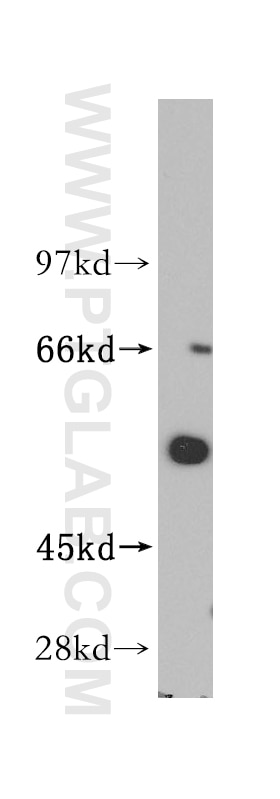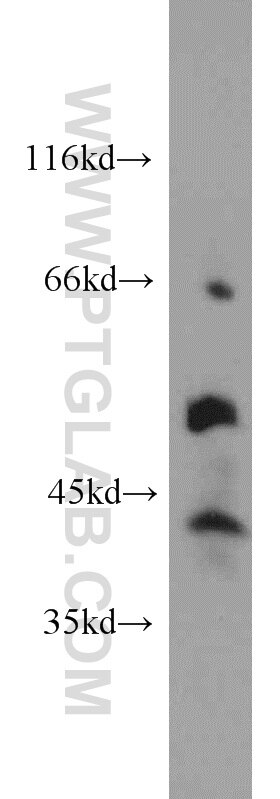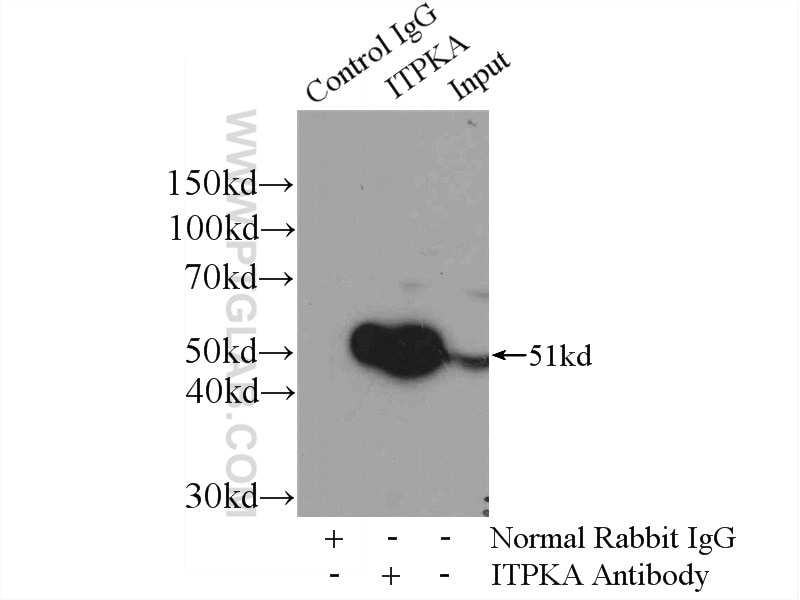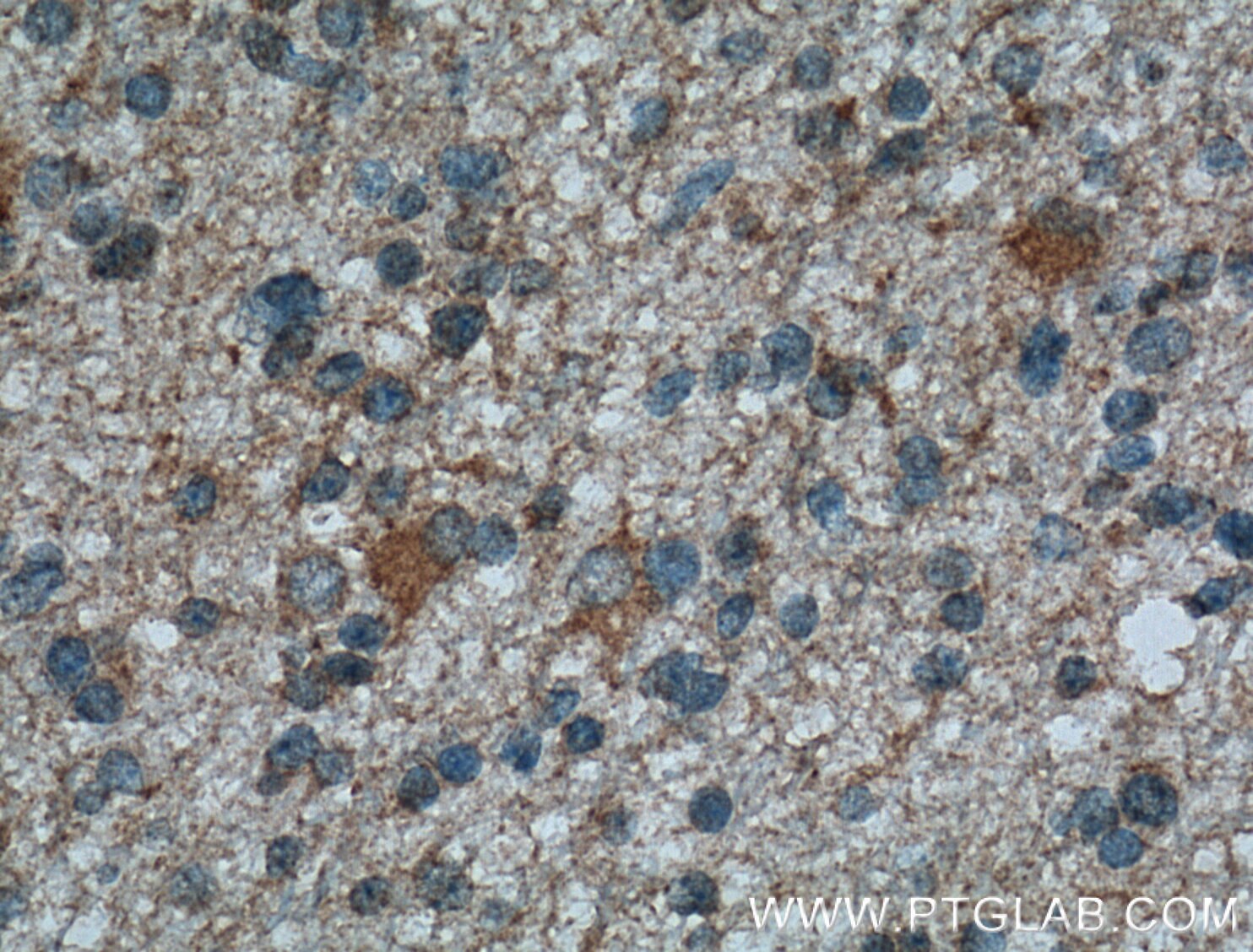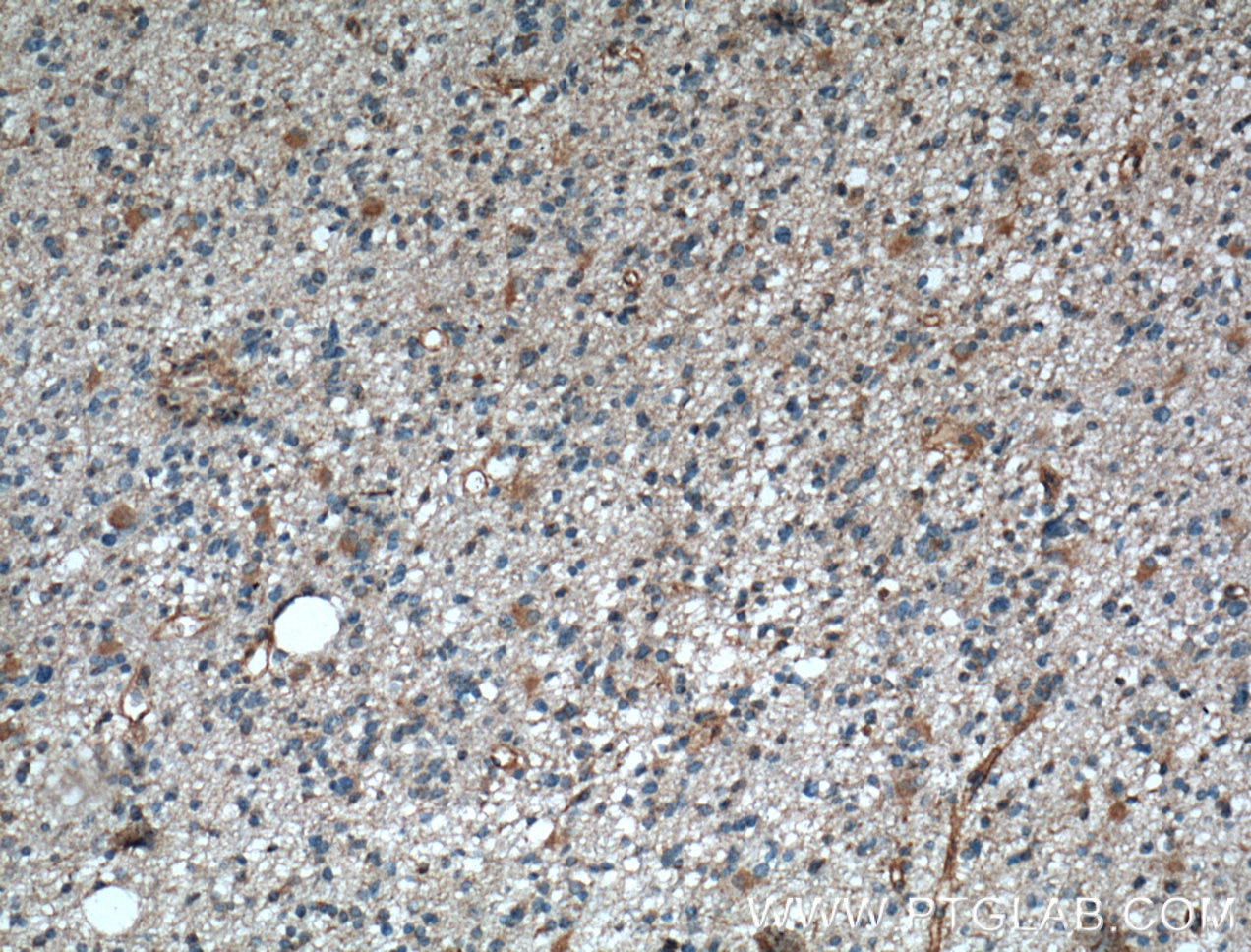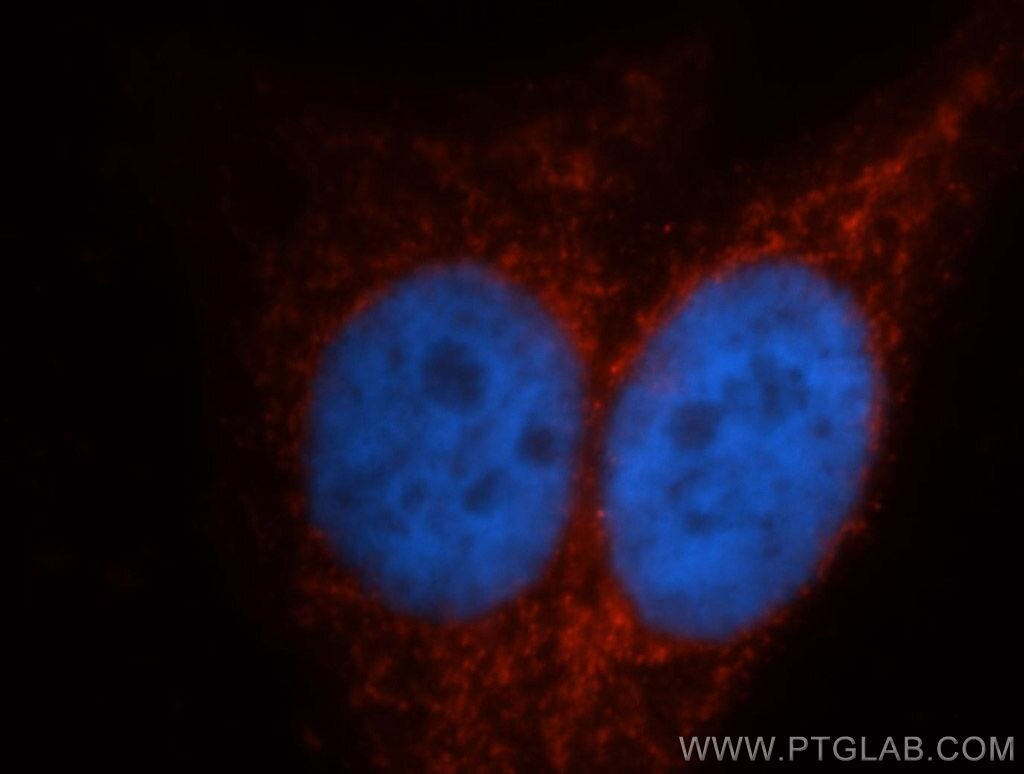- Phare
- Validé par KD/KO
Anticorps Polyclonal de lapin anti-ITPKA
ITPKA Polyclonal Antibody for WB, IP, IF, IHC, ELISA
Hôte / Isotype
Lapin / IgG
Réactivité testée
Humain, rat, souris
Applications
WB, IHC, IF/ICC, IP, ELISA
Conjugaison
Non conjugué
N° de cat : 14270-1-AP
Synonymes
Galerie de données de validation
Applications testées
| Résultats positifs en WB | tissu cérébral de souris |
| Résultats positifs en IP | tissu cérébral de souris |
| Résultats positifs en IHC | tissu de gliome humain, il est suggéré de démasquer l'antigène avec un tampon de TE buffer pH 9.0; (*) À défaut, 'le démasquage de l'antigène peut être 'effectué avec un tampon citrate pH 6,0. |
| Résultats positifs en IF/ICC | cellules HepG2 |
Dilution recommandée
| Application | Dilution |
|---|---|
| Western Blot (WB) | WB : 1:500-1:3200 |
| Immunoprécipitation (IP) | IP : 0.5-4.0 ug for 1.0-3.0 mg of total protein lysate |
| Immunohistochimie (IHC) | IHC : 1:100-1:400 |
| Immunofluorescence (IF)/ICC | IF/ICC : 1:20-1:200 |
| It is recommended that this reagent should be titrated in each testing system to obtain optimal results. | |
| Sample-dependent, check data in validation data gallery | |
Applications publiées
| KD/KO | See 1 publications below |
| WB | See 7 publications below |
| IHC | See 3 publications below |
| IF | See 2 publications below |
Informations sur le produit
14270-1-AP cible ITPKA dans les applications de WB, IHC, IF/ICC, IP, ELISA et montre une réactivité avec des échantillons Humain, rat, souris
| Réactivité | Humain, rat, souris |
| Réactivité citée | Humain, souris |
| Hôte / Isotype | Lapin / IgG |
| Clonalité | Polyclonal |
| Type | Anticorps |
| Immunogène | ITPKA Protéine recombinante Ag5588 |
| Nom complet | inositol 1,4,5-trisphosphate 3-kinase A |
| Masse moléculaire calculée | 51 kDa |
| Poids moléculaire observé | 51 kDa |
| Numéro d’acquisition GenBank | BC026331 |
| Symbole du gène | ITPKA |
| Identification du gène (NCBI) | 3706 |
| Conjugaison | Non conjugué |
| Forme | Liquide |
| Méthode de purification | Purification par affinité contre l'antigène |
| Tampon de stockage | PBS avec azoture de sodium à 0,02 % et glycérol à 50 % pH 7,3 |
| Conditions de stockage | Stocker à -20°C. Stable pendant un an après l'expédition. L'aliquotage n'est pas nécessaire pour le stockage à -20oC Les 20ul contiennent 0,1% de BSA. |
Informations générales
ITPKA(Inositol-trisphosphate 3-kinase A) belongs to the inositol phosphokinase (IPK) family. It accumulates in dendritic spines and seems to be critically involved in synaptic plasticity. The protein possesses two functional activities. In neurons, ITPKA is targeted to F-actin via an N-terminal actin binding domain (amino acids 1-66) and is relevant for long term potentiation and spatial learning(PMID:20022963).
Protocole
| Product Specific Protocols | |
|---|---|
| WB protocol for ITPKA antibody 14270-1-AP | Download protocol |
| IHC protocol for ITPKA antibody 14270-1-AP | Download protocol |
| IF protocol for ITPKA antibody 14270-1-AP | Download protocol |
| IP protocol for ITPKA antibody 14270-1-AP | Download protocol |
| Standard Protocols | |
|---|---|
| Click here to view our Standard Protocols |
Publications
| Species | Application | Title |
|---|---|---|
Neuron Nicotinamide Pathway-Dependent Sirt1 Activation Restores Calcium Homeostasis to Achieve Neuroprotection in Spinocerebellar Ataxia Type 7. | ||
J Mol Cell Biol Single-cell transcriptomes reveal molecular specializations of neuronal cell types in the developing cerebellum. | ||
Int J Cancer Functional role of inositol-1,4,5-trisphosphate-3-kinase-A for motility of malignant transformed cells.
| ||
Neuroscience Sex-specific Regulation of Spine Density and Synaptic Proteins by G-protein-coupled Estrogen Receptor (GPER)1 in Developing Hippocampus. | ||
Cytoskeleton (Hoboken) The catalytic domain of inositol-1,4,5-trisphosphate 3-kinase-A (ITPKA) contributes to ITPKA-induced modulation of F-actin. | ||
